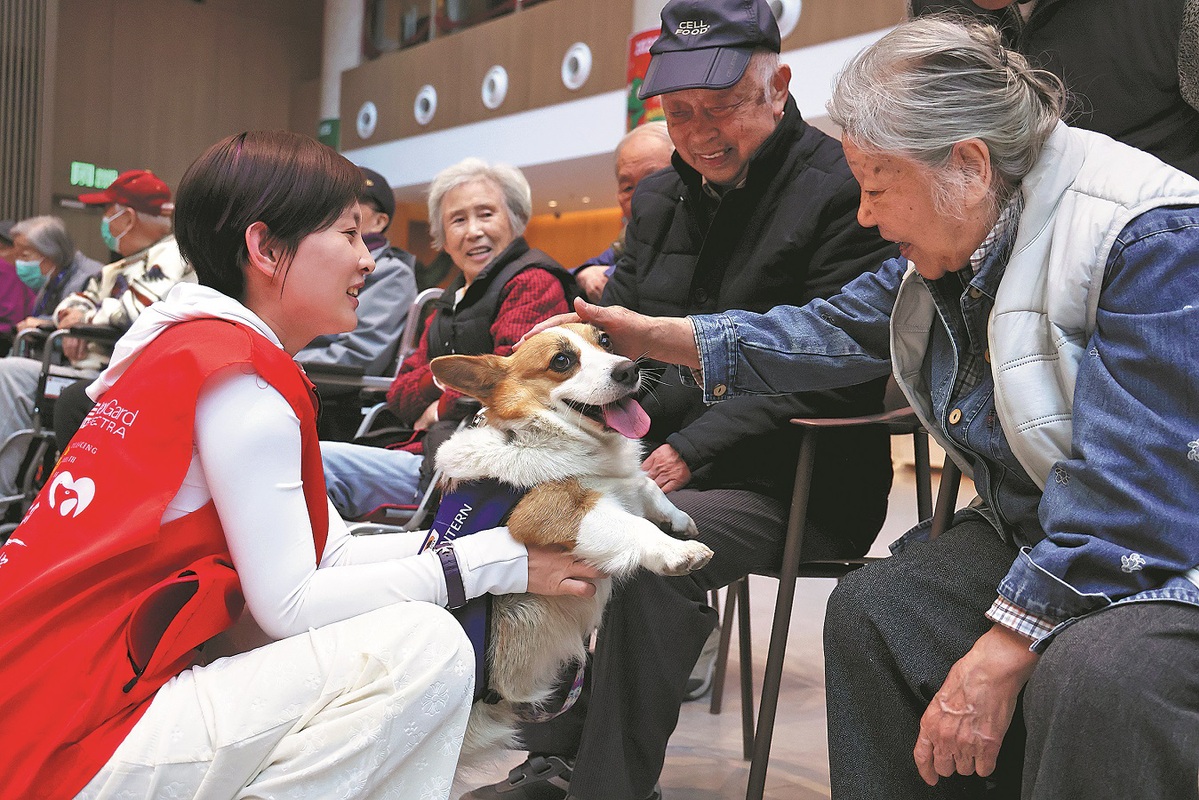When dogs become therapists
A growing army of trained animals is helping people — from autistic children to the elderly — enjoy more fulfilling lives






Success with autistic child
Starting in 2022, at the beginning of each school semester, some autistic children at Huimin School in Shanghai's Fengxian district have participated in special classes. In one of those, the children had therapy dog partners and played games, guided by Wu Qi and some volunteers, who worked with the teachers to complete certain functional improvement training.
For example, the children learned to introduce themselves to the dogs, after which they introduced the dogs to other classmates, thereby enhancing their language and communication abilities and gradually integrating into the group.
They also played fetch, cooperated in balancing yoga balls and focused on feeding, which helped develop sensory abilities, improve attention and teach the animals to follow instructions.
For children with more severe autism, petting the dogs was a good way to help stabilize emotions in many cases.
"The intervention of therapy dogs in the classroom had a direct impact on improving the emotions of some children," said Wu Huizhe, a teacher at the school.
She described a child with significant emotional disorders in her class who was initially restless and often abruptly ran out of the classroom.
"She also had very closed-off interpersonal interactions," Wu said. "But after attending four sessions with a therapy dog, she could sit quietly in the classroom for the entire 35-minute lesson and have simple conversations with classmates on the topic of small animals."
As one of the most populous countries in the world, China is getting older on average. It is projected that by 2035 the population of people aged 60 and above will surpass 400 million, creating some unique problems for individuals and society.
Over the past decade, the PFH team has stayed close to the elderly, providing animal-assisted therapy — a form of non-drug treatment — to communities and nursing homes. The interactions with animals provide surprising physical and mental benefits.
While receiving basic medical care and other services, the elderly can relax, relieve stress, enhance social skills and find more joy in life by interacting with small animals.
Since participating in PFH's first activity in her community in March, Zhou Yuezhen, a 68-year-old resident of Shanghai, looks forward to every visit with the dogs.
"I had a dog about 20 years ago, but it died, which made me very sad," she said. "Because I was afraid of losing again, I never kept another one.
"So it is truly a joyful experience every time a different dog comes to our community to interact with us elderly people and play games," she said. "I also participate in other activities, like handicrafts. But the dogs provide other kinds of interactive experiences, which are very different from human ways."



















